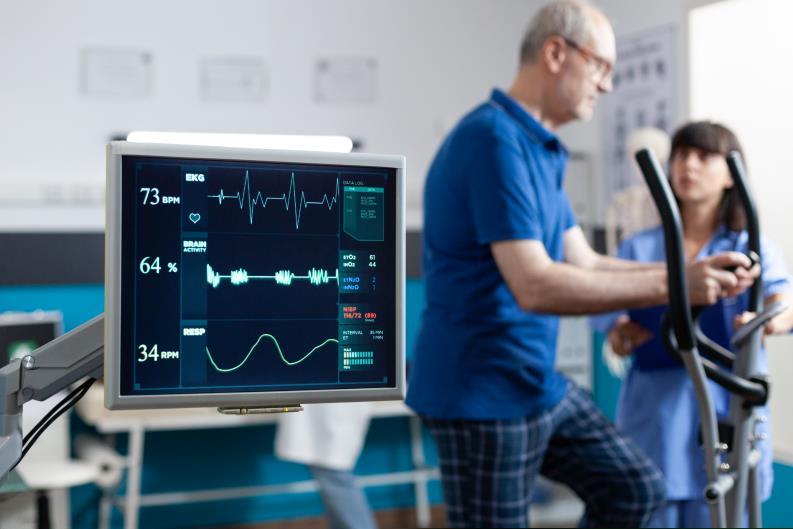Overcoming Barriers to Cardiology EMR Adoption in Small Practices

ElectronicMedicalRecords(EMRs)haveevolvedasacriticaltoolforstoringpatientdata efficiently,enhancinghealthcareoutcomes,andoptimizingclinicalprocessesintoday'sfast evolvinghealthcaremarket.Despitetheirobviousadvantages,however,manysmall cardiologypracticeshavebeenslowtoadoptEMRs.Thesepracticesfrequentlyconfront distincthurdlesthatpreventthemfromadoptingthistechnology.Inthisarticle,wewill lookatsomeofthemostprevalentchallengesthatsmallcardiologypracticesexperience andoffereffectivesolutionstosolvethem.
• Cost Concerns
TheperceivedhighcostisoneofthekeyhurdlestoEMRimplementationinsmallcardiac practices.EMRsystemsfrequentlyhaveupfrontexpenditures,softwarelicencingfees, ongoingmaintenancecosts,andemployeetraining.Thesefeescanbeexpensiveforsmall practiceswithrestrictedfunds.
Solution: Research Cost-Effective Solutions
Smallcardiologypracticesshouldlooktowardscost-effectiveEMRoptionstoaddress financialproblems.Someprovidersprovidecloud-basedEMRs,removingtheneedfor costlyhardwareandinfrastructure.ConsiderdiscussingpricingwithEMRvendorsor investigatinggovernmentincentivesorgrantsthatmaybeavailabletoencourageEMR adoption.
• Resistance to Change
ImplementinganEMRrequiressignificantchangesinworkflowsandroutines,whichcan bemetwithresistancefromphysiciansandstaffmembers.Thefearofdisrupting establishedpracticesorunfamiliaritywithnewtechnologycancreatehesitancy.
Solution:
Engage in Comprehensive Training and Support
Prioritizethoroughtrainingforallstaffmemberstoensuretheyarecomfortableusingthe EMRsystem.Involvingtheentireteaminthedecision-makingprocessandhighlightingthe long-termbenefitscanhelpalleviateresistancetochange.EmphasizehowEMRscan enhancepatientcareandstreamlineadministrativetasks,therebyimprovingoverall practiceefficiency.
• Interoperability Challenges
Cardiologypracticesoftenworkinconjunctionwithotherhealthcarefacilitiesand specialists,necessitatingseamlessdataexchangebetweendifferentsystems. Interoperabilitychallenges,especiallyinsmallpracticeswithlimitedITresources,can hinderEMRadoption.
Solution: Choose Interoperable EMR Systems
ChooseanEMRsystemthatwasbuiltwithinteroperabilityinmind.LookforEMRsthat enablehealthinformationexchangestandardssuchasHL7orFHIR,allowingforseamless datasharingbetweenhealthcareproviders.Createanetworkwithotherhealthcare facilitiesandspecialiststofacilitatedataexchangeandcarecoordination.
• Data Security and Privacy Concerns
Patientdatasecurityandprivacyareparamountconcernsforsmallcardiologypractices,as theymaynothavethesamelevelofcybersecurityresourcesaslargerinstitutions.Fearof databreachesandnon-compliancewithhealthcareregulationscandeterEMRadoption.
Solution:
Prioritize Data Security Measures
CollaboratewithtrustedEMRvendorswhoadheretoindustry-leadingsecurity requirements,suchasHIPAAcompliance.Toprotectpatientinformation,keeptheEMR systemuptodateandincorporatestrongaccesscontrols,dataencryption,andfirewall protection.
WhileEMRsprovidenumerousadvantagestocardiologypractices,tinypracticesconfront specifichurdlesthatcanstymietheiradoption.Smallcardiacpracticescanovercomethese challengesandsuccessfullyuseEMRsbyaddressingcostconcerns,embracingchange throughcomprehensivetraining,prioritisinginteroperability,andguaranteeingdata security.Embracingtechnologywillenablethemtoimprovepatientcare,streamline workflows,andincreaseoverallpracticeefficiency,resultinginimprovedhealthcare resultsfortheirpatients.
